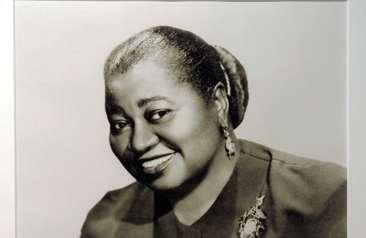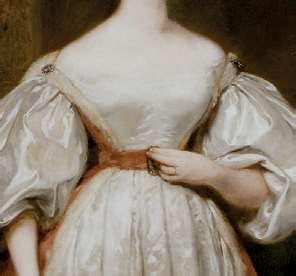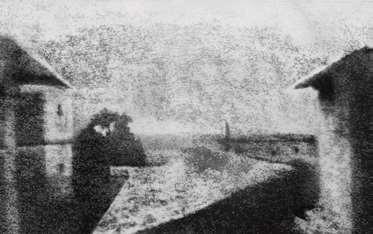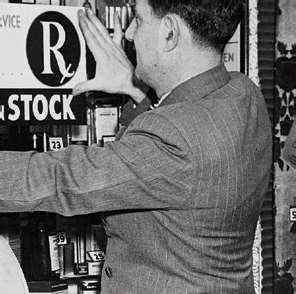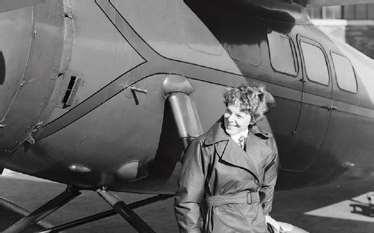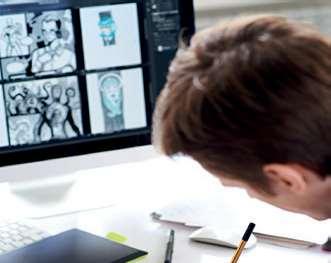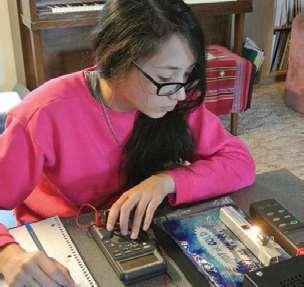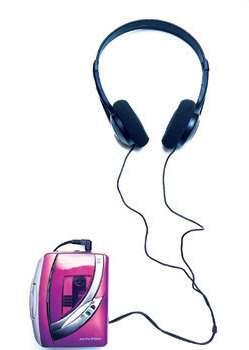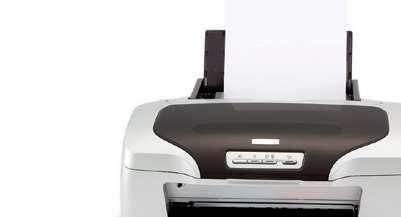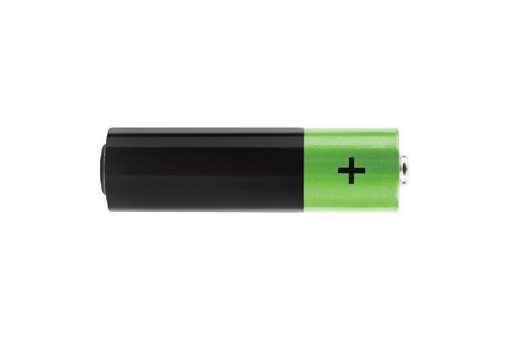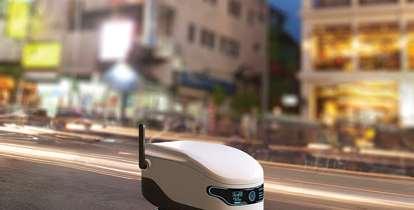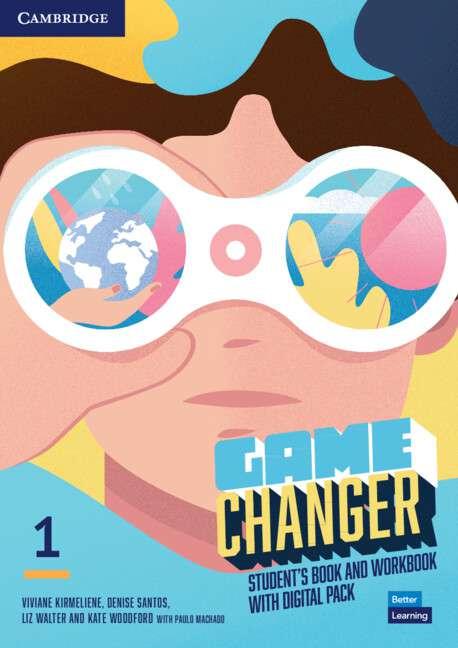
and

with Digital Pack
Kirmeliene, Denise santos, Liz Walter and Kate Woodford with Paulo Machado
Cambridge University Press & Assessment 978-1-009-21996-9 Game Changer Level
Student's Book
Table of Contents More Information www.cambridge.org © in this web service Cambridge University Press & Assessment CONTENTS UNIT VOCABULARYGRAMMARREADINGLISTENING SPEAKING AND PRONUNCIATION WRITING CRITICAL THINKING Welcome! p.4 1 Around Town p.9 1.1 Changing Cities Places in Town p.10 Prepositions of Place p.14 There is/are (Affirmative, Negative, Yes/No Questions, and Short Answers) p.13 Adverbs of Frequency p.15 A Blog Post: Unusual Towns p.12 Around the World: Beautiful Olinda p.16 1.2 Children’s Day A Dialogue Asking for and Giving Directions p.14 Giving Directions Pronunciation: Question Intonation p.18 A Flyer*Is it important to have places in town where teenagers can hang out? Do you feel safe during Carnival? 2 Delicious Diversity p.19 2.1 Let’s Eat Bread! Food p.20 Cooking p.24 Can for Permission (Affirmative, Negative, Yes/No Questions, and Short Answers) p.23 Making Suggestions and Responding p.25 Subject and Object Pronouns p.25 An Online Article: School Life –What’s for lunch today? p.22 Science: Tips for a Healthy Diet p.26 2.2 The Mediterranean Diet A TV Cooking Show p.24 Planning a Recipe* Pronunciation: the th sound /θ/ and /ð/ A Recipe p.28 Where do you normally eat? Think about your school. Who cleans it? How do you help to keep it clean? Do you think that it is a good idea to have a meat-free day every week? Review p.29 3 What a Vacation! p.31 3.1 Let’s Go On Vacation! On Vacation p.32 Facilities, People, and Activities p.36 Simple Past of to be (Affirmative and Negative) p.35 There was/were p.35 Simple Past of to be (Yes/No Questions and Short Answers p.37 There was/were: Yes/No Questions and Short Answers p.37 An Online Forum: Your Favorite Vacation Destination p.34 Around the World: A Family Road Trip Through France p.38 3.2 Come To Costa Rica! A Podcast p.36 Talking About Your Vacation Pronunciation: Compound Nouns p.40 An Email*Why are vacations important?
you are on a road trip in a camper with your family. What do you like? What don’t you like? 4 We All Have a Story p.41 4.1 Tell Me A Story! Story Verbs p.42 Time Expressions p.46 Simple Past of Regular Verbs (Affirmative) p.45 Simple Past of Irregular Verbs (Affirmative and Negative), Simple Past of Regular Verbs (Negative) p.47 A Story: Peter and the Wolf p.44 History: The History of Storytelling p.48 4.2 Stories From Beijing A Radio Interview about Urban Myths p.46 Showing Interest* Pronunciation: –ed in the Simple Past A Story Summary p.50 Why do you think people read stories? We often watch movies and series alone. What is good about that? Is there anything bad? Review p.51 * This material can be downloaded from the Digital Resource Pack.
1
Workbook
Viviane
Imagine
Cambridge University Press & Assessment
978-1-009-21996-9 Game Changer Level 1 Student's Book and Workbook with Digital Pack
Viviane Kirmeliene, Denise santos, Liz Walter and Kate Woodford with Paulo Machado Table of Contents More Information
5 Incredible Journeys p.53
5.1 Travel Like An Egyptian!
Transportation p.54 Transportation Verbs p.58
Simple Past of Regular and Irregular Verbs (Questions and Answers) p.57
Could for Ability in the Past (Affirmative, Negative, Yes/ No Questions, and Short Answers) p.59
Personality Adjectives p.64 Feelings p.68
Past Progressive (Affirmative and Negative) p.67
Past Progressive (Questions and Answers) p.69
A Fact Sheet: Amazing Travelers (Nellie Bly) p.56
Around the World: Getting Around … Hong Kong with Tom! p.60
5.2
Beating The Traffic!
An Online Article: Can We See With Our Ears? p.66
Physical Education: The Olympic Games p.70
A Radio Show About Travel in the Past p.58
Asking Questions About the Past Pronunciation: –ed in the Simple Past: /t/, /d/, and /ɪd/ p.62
A Biography*How was traveling different 100 years ago?
Imagine you can take only one small suitcase on an around-theworld journey. What do you pack?
6.1
An Interview About an Anecdote p.68
Describing a Person* Pronunciation: the schwa /ə/ sound

6.2 The First Superheroes
An Online Magazine Article: Teen Inventors
Around the World: Why is Estonia Called E-stonia Now? p.82
7.2
A Game Show About Technology From the Past p.80
Telling an Anecdote
Pronunciation: Linking Words p.84
A Social Media Post p.72
What kind of person can be a hero?
What can you do to be an everyday hero?
Do you think modern athletes are great heroes?
A Review*How can we help each other have great ideas?
Compare the use of technology in your country to Estonia’s.
What are the similarities?
What are the differences?
A Weather Report p.90
Giving your Opinion* Pronunciation: Word Stress
A Poster p.94
What small things can we do to help nature?
Is it important to know what your hometown or village looked like in the past?
www.cambridge.org © in this web service Cambridge University Press & Assessment UNIT VOCABULARYGRAMMARREADINGLISTENING SPEAKING
WRITING CRITICAL
AND PRONUNCIATION
THINKING
6 Heroes Make a Difference p.63
Can
Hero
You
Be A
Review p.73 7 Great Ideas p.75 7.1 The History Of Television Innovation Verbs p.76 Technology p.80 Past Progressive and Simple Past p.79 Possessive Pronouns p.81
p.78
Changing Technology
8 Our Natural World p.85 8.1 Our Amazing World Nature p.86 The Weather p.90 Verbs to Express Likes, Wants, and Needs p.89 Connectors (After, And, Before, But, However, and So) p.91
p.92
You’re
A Letter: Dear President p.88 Geography: Deforestation
8.2
Destroying My Habitat!
Review p.95 Reading: Around the World and Across the Curriculum p.98
Irregular Verb List p.110; Workbook p.111
; Puzzles and Games p.102; Projects p.106;
University Press & Assessment 978-1-009-21996-9 Game Changer Level 1 Student's Book and Workbook with Digital Pack Viviane Kirmeliene, Denise santos, Liz Walter and Kate Woodford with Paulo Machado Excerpt
WELCOME!
0.01 Complete the family tree with the words below. Then listen, check, and repeat.
POSSESSIVE ADJECTIVES

Use possessive adjectives to complete the sentences.
1 My friend Zoë and I do our homework at school.
2 Hi, name’s James. What’s your name?
3 Emma loves new bike. She takes it everywhere.
4 You have a lot of clothes. Is closet big?
5 This is the new student. name is Pedro.
6 My sisters like sports. favorite class is PE.
Rewrite the sentences so that they have the same meaning. Use the possessive (’s).
1 Dan has brown hair. Dan’s hair is brown.
2 Maria has blue eyes.
3 My mom has long hair.
4 My cousin has a big yard.
That’s my uncle. His name’s Mario. Who’s that?
More Information www.cambridge.org © in this web service Cambridge University Press & Assessment
Cambridge
Possessive
Singular I you he she it my 1 your 2 3 its Plural we you they 4 5 6 2
Complete the chart with the correct words.
Adjectives
FAMILY
•
1
• aunt• brother• cousin • dad• grandma • grandpa
mom• sister• uncle
4
3
USE
POSSESSIVE (’S) Draw your family tree. Ask and answer questions with a partner. 5
IT!
ME! grandma 1 34 789 56 2
Cambridge University Press & Assessment





























978-1-009-21996-9 Game Changer Level 1 Student's Book and Workbook with Digital Pack Viviane Kirmeliene, Denise
WELCOME
www.sydneyglobalhighschool.com
Meet the New Students in Our School
Hi! I1'm Joana Silva. I2 12 years old and I3 in Grade 7. I4 from Australia. I’m from Brazil, but I5 in Sydney with my family now. My parents 6 from Brazil, too. I have a sister and we do a lot of things together. Our favorite hobby 7 surfing. I love languages, and my favorite school subjects 8 English and Spanish.





Put the words in the correct order to make questions.
LOOK!
I am Mexican. = I’m Mexican. She is not Mexican. = She’s not Mexican. / She isn’t Mexican. You are not Mexican. = You’re not Mexican. / You aren’t Mexican.

www.cambridge.org © in this web service Cambridge University Press & Assessment
santos, Liz Walter and Kate Woodford with Paulo Machado Excerpt More Information
1 2 3
1
0.02 Complete the labels with the countries (C) and nationalities (N). Then listen, check, and repeat the words and letters.
VERB TO BE
2
0.03 Complete the post with ’m, ’m not, is, or are. Then listen and check.
3
C: Japan
1 old / Are / 12 / you / years / ?
Are you 12 years old?
2 you / Russia / Are / from / ?
3 school / big / your / Is / ?
4 your / nice / Are / teachers / ?
4
IT!
Work in pairs. Ask and answer the questions in Exercise 3.
USE
C: The Uni States N: Brazil i a n N: Japan
N:
can
C: Brazil
ABOUT NEWS STUDENTS CONTACT TEACHERS
Cambridge University Press & Assessment

978-1-009-21996-9 Game Changer Level 1 Student's Book and Workbook with Digital Pack Viviane Kirmeliene, Denise santos, Liz Walter and Kate Woodford with Paulo Machado Excerpt More Information
CAN FOR ABILITY
0.04 Complete the sentences. Use the correct form of can and the verbs. Then listen and check.
1 Sarah can ice-skate (ice-skate) very well. (+)
2 My grandparents (play) video games. (–)
3 you (ski)? (?)
IN, ON, AT
4 I (dance) the samba. (–)
5 your parents (run) 10 km? (?)
6 My friends and I (speak) English. (+)
Complete the chart. Use in, on, and at We use ...with ...
1 time (7 o’clock, 7 p.m.)
2 months (March), years (2030)
3 days of the week (Monday)
SIMPLE PRESENT
4
3
2 Complete the sentences with in, on, or at. Check (✓) the sentences that are true for you. Then tell a partner.
1 I go to the science lab on Wednesdays.
2 My birthday isn’t May.
3 I go to bed 10:15 Saturdays.
4 I have dinner 7 o’clock every day.
Read Mia’s plans for the week. Write T (true) or F (false). Then correct the false sentences.
PlannerWeekly
Monday
First day of school. Take Bus 22.
Tuesday Buy blue vase for Mom after school.
Wednesday Mom’s birthday. Party at 7 p.m.
Thursday Movies at Pat’s house. My house next week!
1 Mia has a party on Thursday. F She doesn't have a party on Thursday. She has a party on Wednesday.
2 She practices music on Fridays.
3 She watches movies on Thursdays.
4 Her mom hates blue.
5 She walks to school.
Friday Music practice 6 p.m. every week!
5
USE IT! That’s nice!
Work in pairs. Talk about what you do every week.
I play soccer on Saturdays.
I hang out with my friends on Sundays.
Me too.
www.cambridge.org © in this web service Cambridge University Press & Assessment
1
Cambridge University Press & Assessment

978-1-009-21996-9 Game Changer Level 1 Student's Book and Workbook with Digital Pack Viviane Kirmeliene, Denise santos, Liz Walter and Kate Woodford with Paulo Machado Excerpt More Information
Complete the questions with Do or Does. Then ask and answer with a partner.
1 Do you have computer science classes?
2 your friend watch movies at your house?
3 you like cold pizza?
4 your cousins go to bed early on Saturdays?
5 you and your friends do your homework at school?
6 your English teacher wear glasses?
CLOTHES
0.05 Complete the clothes words. Then listen, check, and repeat.
PRESENT PROGRESSIVE
Look at the image. Complete the sentences with the correct affirmative (+) or negative (–) form of the present progressive.
1 Beatriz is wearing a skirt.

2 Beatriz and Theo sneakers.
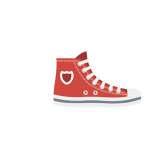
3 Laura glasses.
4 Leonardo shorts.
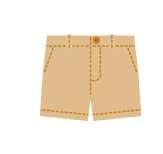
5 Isaac and Theo pants.

6 Isaac is saying: “I a blue T-shirt.”
LOOK!
We add –ing to the verb in the present progressive: wear wearing; take taking; swim swimming.
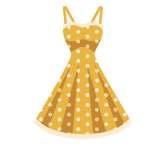

USE IT!
Work in pairs. Take turns describing a classmate for your partner to guess. 4
She’s wearing blue jeans and a red T-shirt. No, it’s not!
Is it Marina?
www.cambridge.org © in this web service Cambridge University Press & Assessment
1
2 1 2 3 4 5 6 d s j
s weatshirt s s
3
Beatriz Leonardo Isaac Laura Theo
WELCOME
Cambridge University Press & Assessment
978-1-009-21996-9 Game Changer Level 1 Student's Book and Workbook with Digital Pack Viviane Kirmeliene, Denise santos, Liz Walter and Kate Woodford with Paulo Machado Excerpt
More Information
PRESENT PROGRESSIVE
1 Sophia and Evelyn / talk / ? Are Sophia and Evelyn talking?
2 Evelyn / wear / jeans / ?
3 Jessica / watch / TV / ?
4 Noah and Samuel / read / book / ?
5 Sophia and Evelyn / sit / on the sofa / ?
Are Sophia and Evelyn talking? Yes, they are.
PRESENT PROGRESSIVE AND SIMPLE PRESENT
0.06 Circle the correct options. Then listen and check.
1 Sarah wears / is wearing red shoes today.
2 Mark likes / is liking sports.

3 My friends and I are not sitting down / don’t sit down all day on the weekends.
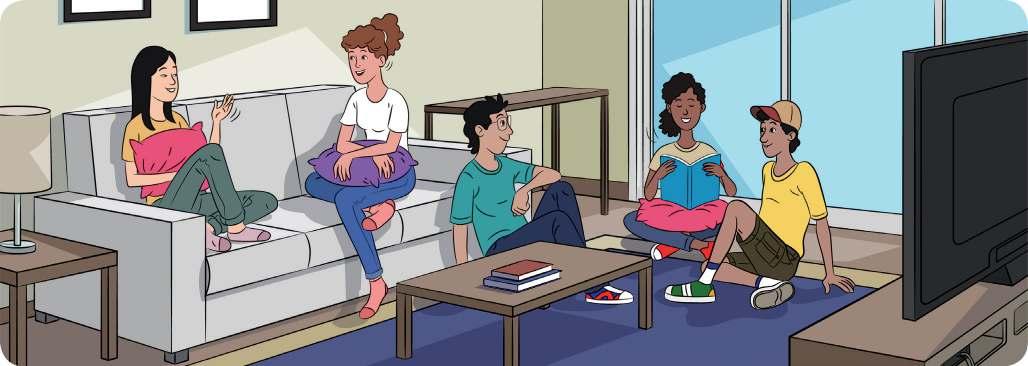
4 Do you go / Are you going to restaurants on Saturdays?
5 My friend and I talk / are talking on the phone now.
6 Is your teacher writing / Does your teacher write on the board now?
Complete the sentences so they are true for you.
1 I like (like) pizza.
2 I (look) at my cell phone now.
3 I (have) a lot of cousins.
4 I (wear) jeans now.
5 I (do) my homework on Saturday evenings.
4
Make questions from the sentences in Exercise 3. Ask and answer with a partner.
USE IT! Yes, I do.
Do you like pizza?
www.cambridge.org © in this web service Cambridge University Press & Assessment
ask and answer the questions with a partner. 1
Write questions about the teenagers in the image. Then
2
3
Sophia Evelyn Jessica
Samuel Noah
Cambridge University Press & Assessment




978-1-009-21996-9 Game Changer Level 1 Student's Book and Workbook with Digital Pack
Viviane Kirmeliene, Denise santos, Liz Walter and Kate Woodford with Paulo Machado Excerpt

More Information
AROUND
TOWN
UNIT GOALS
• Talk about places in town.
• Read about unusual towns.
• Listen to a dialogue.
• Learn about a festival.
• Speak about giving directions.
THINK!
1 Where are the teenagers in the photos?
2 Is it important to have places in town where teenagers can hang out? Why / Why not?
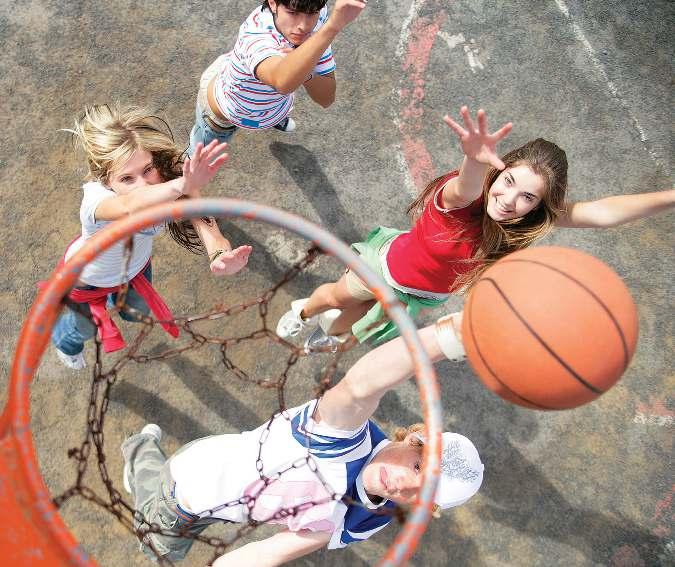
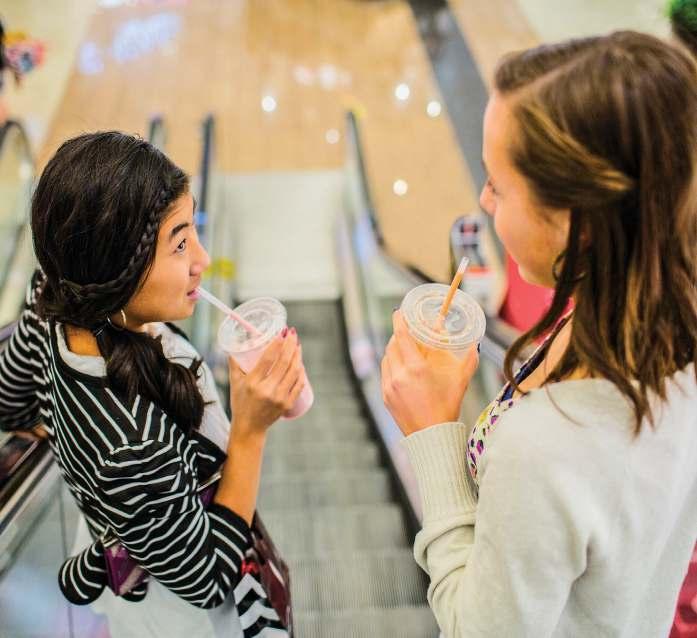
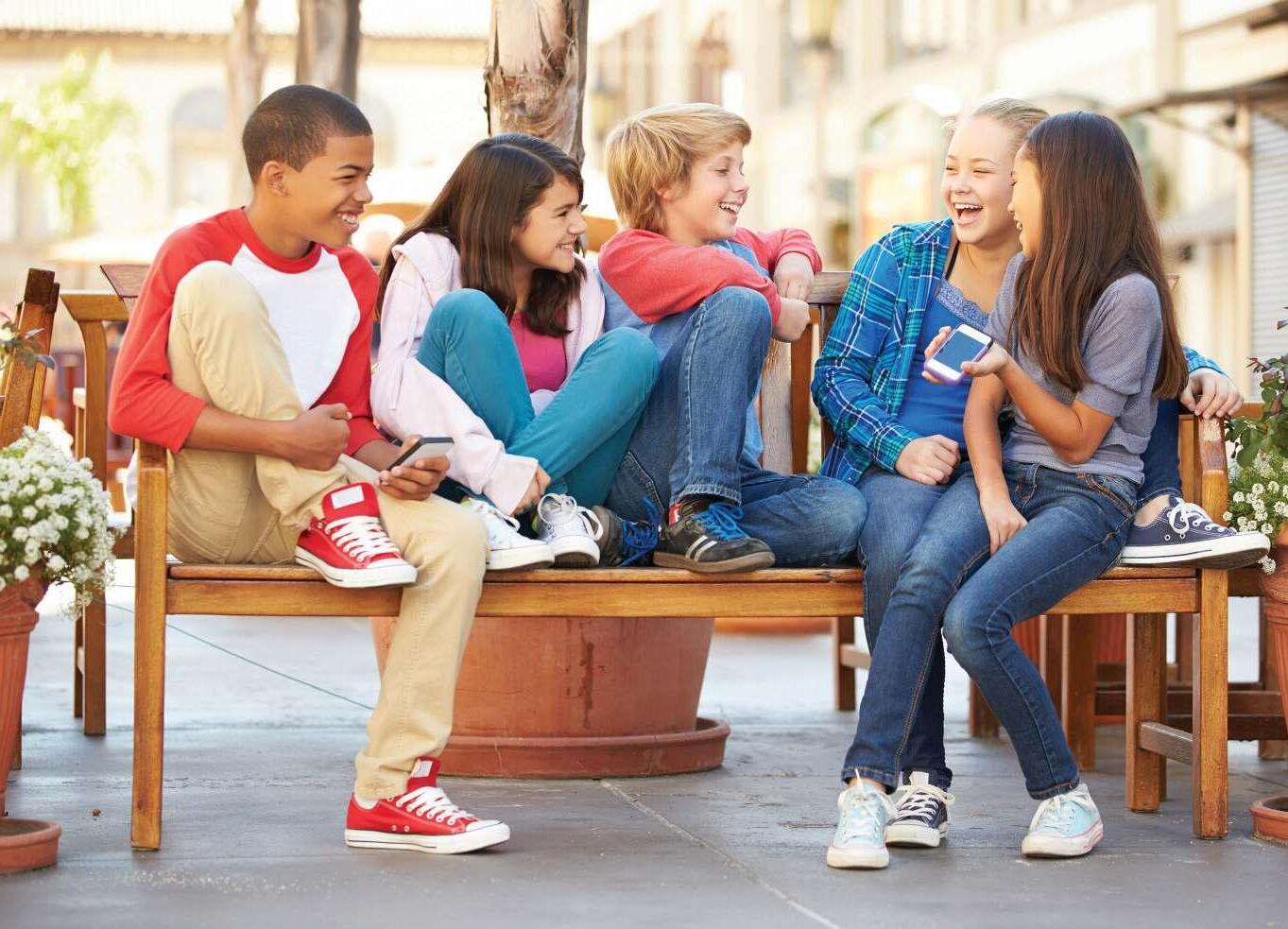
VIDEO
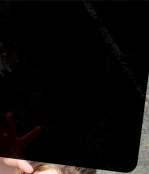
1.1



1 What things that change do you see?
2 Which four cities are in the video?


1
Cambridge University Press & Assessment













978-1-009-21996-9 Game Changer Level 1 Student's Book and Workbook with Digital Pack Viviane Kirmeliene, Denise santos, Liz Walter and Kate Woodford with Paulo Machado
Western Park: the place to be with friends. There is a skatepark in the !
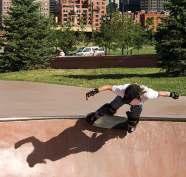

I love movies. The is my favorite place. It’s in the




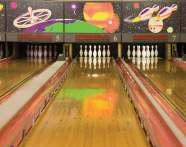

I love my new neighborhood. There is a
We have a great sports , too!

I go to the a lot with my dad to buy food. There is a lot of organic stuff there. And there’s a nice next to it!

Excerpt More Information www.cambridge.org © in this web service Cambridge University Press & Assessment
1.01 Complete the posts with the words below. Then listen and check. • bowling alley• clothing store• grocery store• mall • movie theater• park• skatepark• stadium 1 VOCABULARY IN CONTEXT
PLACES IN TOWN
My new neighborhood My fave stores my neighborhood My favorite places Sooophil Fun.Tastic
Avava34 SuperSonic
1 2 3 4
Cambridge University Press & Assessment

978-1-009-21996-9 Game Changer Level 1 Student's Book and Workbook with Digital Pack
Viviane Kirmeliene, Denise santos, Liz Walter and Kate Woodford with Paulo Machado Excerpt More Information
2 3
1.02 Write the answers to the questions using words from Exercise 1. Then listen, check, and repeat.
Where do you go to …
1 buy jeans or a T-shirt? clothing store
2 buy stuff and have a snack with friends?
3 buy fruit, vegetables, and other kinds of food?
4 hang out with friends, run, or relax?
5 watch a soccer game?
6 see your favorite actor?
7 go bowling with friends or family?
8 hang out with friends and skate?
Match the comments a–f with the posts 1–4 on page 10.
a Where’s that? Do they have organic yogurt there, too? 4
b That’s my favorite place, too. Soccer is my life.
c Looks nice, but I don’t have a skateboard
d I go there every weekend. I like the stores on the first floor. They’re awesome!
e You’re right. It’s really cool. I love their jeans.
f I that place! My friends and I like to listen to music under the
4
Choose five words from Exercise 1 and write them in the chart. Then write three more places in town in the chart. You can use a dictionary.
I go there with my familyI go there with my friends
USE IT!
Look at your chart. Ask and answer questions in pairs. Circle the places in Exercise 4 where you and your partner both go. 5
Do you go to the stadium with your family?
Yes, I do. Do you go to the park with your friends?
www.cambridge.org © in this web service Cambridge University Press & Assessment
1
UNIT
Viviane Kirmeliene, Denise santos, Liz Walter and Kate Woodford with Paulo Machado
1
3





Whittier,Alaska,USA

Whittier is an unusual town because all its residents (around 200 people) live in the same building. There isn’t a mall in Whittier, but there is a small grocery store there. In the building, you can also find a hotel, a restaurant, and a school. You get to the school through a tunnel under the ground. Why? Because it’s very cold in Alaska! Read more
ThamesTown,China
The River Thames is in England, so Thames Town is an English town, right? No, that’s wrong. It is in China, near Shanghai, but the streets and stores look English. The street names are also in English: Oxford Street, Chelsea Street. There are red telephone boxes on the streets, and you can see a statue of Harry Potter there!
4 Thames Town is a Chinese neighborhood in England.

5 There are red streets in Thames Town.
6 The streets in Thames Town have English names.
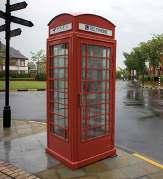
Cambridge University Press & Assessment
Game Changer Level 1 Student's
978-1-009-21996-9
Book and Workbook with Digital Pack
Excerpt More Information www.cambridge.org © in this web service Cambridge University Press & Assessment Look at the text, the title, and the images. Then complete the sentences with the phrases below. • about me • blog posts • unusual towns
text shows two 1
2
To read about the author of the text, you have to click on 3 1.03 Read and listen to the text. Where
find 1–5?
1 a statue TT 2 a grocery store 3 a tunnel to go to school
street
a
Where is this image? Write Whittier or Thames Town
1 2 3 READING THINK!
you live in Whittier. Then imagine you live in Thames Town. Which do you prefer? Why?
T (true) or F (false).
The
about
.
can we
Write W (Whittier) or TT (Thames Town).
4 a
called Chelsea 5
hotel
.
Imagine
Write
Whittier is an American town. T
There are 200 buildings in Whittier.
2
The restaurant and the grocery store in Whittier are in the same building.
4
www.unusualtowns.myblog
unusualtowns unusualtowns unusualtowns unusualtowns unusualtowns
more home | about me | posts | contact me
Read
Cambridge University Press & Assessment
978-1-009-21996-9 Game Changer Level 1 Student's Book and Workbook with Digital Pack Viviane Kirmeliene, Denise santos, Liz Walter and Kate Woodford with Paulo Machado Excerpt
More Information
LANGUAGE IN CONTEXT
Look at the examples below. Complete the sentences from the blog post.
There is/are
Affirmative (+)Negative (–) Yes/No Questions (?)

There is a small grocery store in Whittier.
2 red telephone boxes.
1 a mall in Whittier. Is there a school in Whittier?
There aren’t stadiums in Thames Town. Are there stadiums in Whittier?
UNIT 1
Short Answers
Yes, there is No, there’s not. / No, there isn’t
Yes, there are No, there aren’t
Read the questions in the chart again. Write the correct short answers.
1 Is there a school in Whittier?
2 Are there stadiums in Whittier?
Complete the sentences. Use the correct form of There is/are affirmative (+) or negative (–).
1 There is a bowling alley in my neighborhood. (+)
2 a movie theater in Whittier. (–)
3 many clothing stores in this mall. (+) 4 a nice library in my town. (+) 5 Japanese restaurants near my house. (–)
6 a cafeteria in my school. (–)
Write questions about your partner’s town. Use the phrases.
1 (a movie theater?) Is there a movie theater in your town?
2 (nice gyms?) Are there nice gyms?
3 (Mexican restaurants?)
4 (a skatepark?)
5 (a bowling alley?)
6 (clothing stores?)
USE IT!
LOOK!
Remember: we don’t use the verb have. We use There is or There’s for singular nouns, and There are for plural nouns. There is amall. / There are twomalls in my neighborhood.
Work in pairs. Ask and answer the questions in Exercise 4.
Is there a movie theater in your town?
5 Yes, there is.
www.cambridge.org © in this web service Cambridge University Press & Assessment
1 2 3 4
JOURNEYS INCREDIBLE
UNIT GOALS
• Talk about means of transportation.
• Read about an amazing traveler.

• Listen to a radio show.
• Learn about transportation in Hong Kong.
THINK!
1 Look at the photo. What can you see?







2 How was traveling different 100 years ago?
• Interview someone about how they traveled to school in the past. VIDEO
5.1



1 How did Ancient Egyptians travel on the River Nile?
2 What famous things did they build?
5
53
VOCABULARY IN CONTEXT
TRANSPORTATION
5.01 Read the facts about everyday journeys and write the means of transportation. Then listen, check, and repeat.
• airplane • boat • car • ferry • motorcycle • scooter • subway • taxi • van
Metro, the 1 subway system in São Paulo, takes 5.2 million passengers every day.
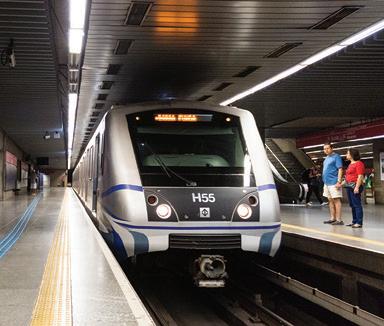
The Airbus A380 is an enormous 2 It can take 850 passengers!

The electric 3 is popular for short trips in cities.
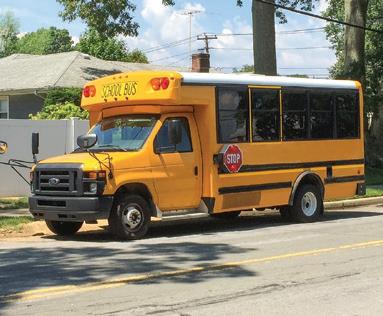
People all over the world get to work and school by 4 . In China, there are almost 200 million!
In the U.K. and many other countries, millions of children use a 5 to get to school.
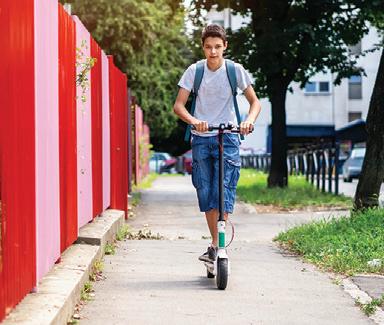
In Giethoorn in the Netherlands, there aren’t roads. You can travel by 6

You can take a 7 anytime on the streets of New York. There are 13,587 yellow cars.

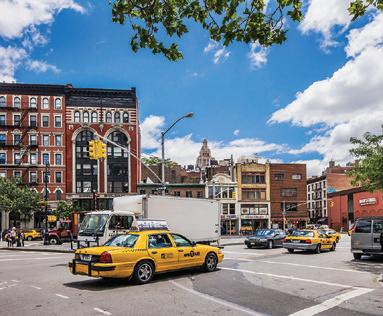
Many families travel by 8 in Thailand. There are around 20 million in the country.
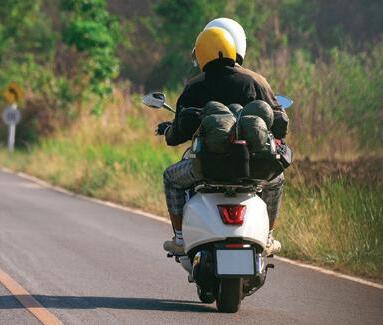
Can you get from Europe to Asia in 20 minutes? Yes! Take a 9 across the Bosphorus strait in Istanbul, Turkey.

5.02 Listen and match situations 1–5 with the means of transportation a–e.
ferry
subway
taxi
1
a
b
1 c
d
e
2 /// EVERYDAY
///
airplane
bike
JOURNEYS
54
Write
6
Complete the chart with your answers.
My Answers
My Classmate’s Answers
1 Means of transportation you use every week
2 How you get to school
3 How you get to the grocery store
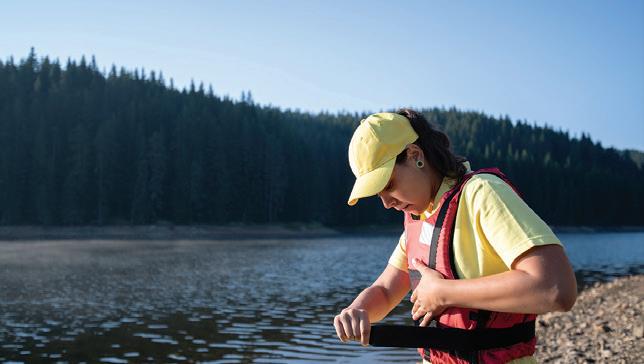
4 Favorite car color
5 Means of transportation you like to use
6 Means of transportation you never use
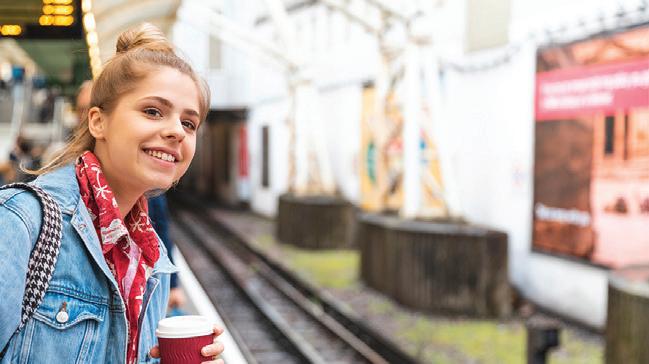

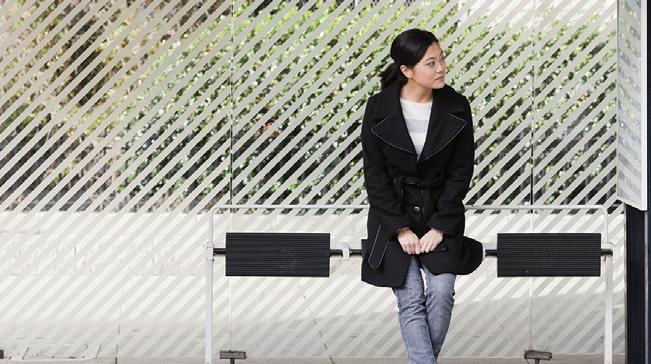
Work in pairs. Take turns to share your information from Exercise 5. Write your classmate’s answers in the chart.
The means of transportation I use every week is a bike. What about you?
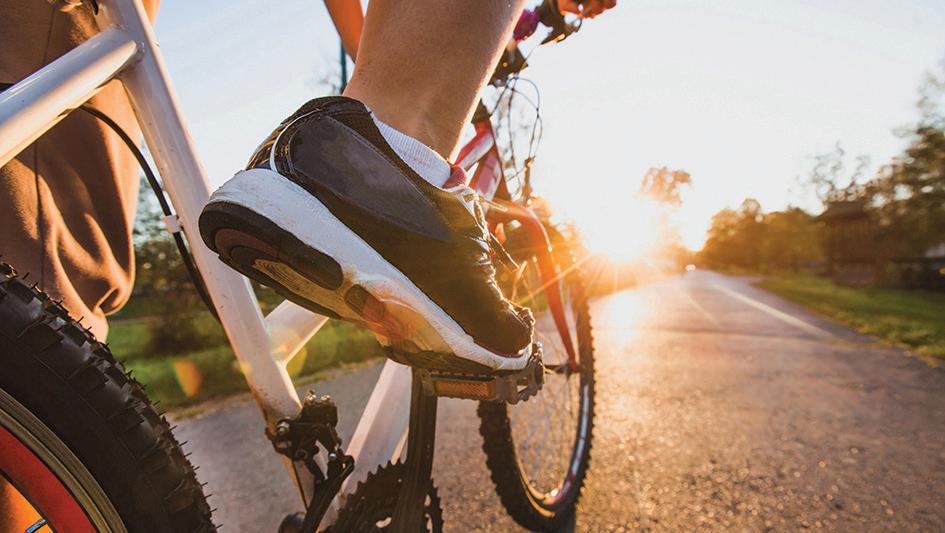
I use the bus.

the means of transportation
people are about to use. Use the words below. • bike • boat • bus • car • motorcycle • train 3
Write
the
the means of transportation in Exercises 1–3 in the chart. Then write two more words in each column. Use a dictionary to help you. Land Air Water car 4 WORKBOOK p.129 PRACTICE EXTRA
USE IT!
5
bus 1 4 2 5 3 6 55 UNIT 5
AMAZING TRAVELERS
Fact sheet #22 – Nellie Bly (1864–1922)
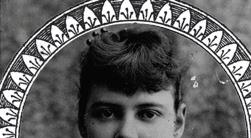
Who was Nellie Bly?
She was an American journalist. She traveled around the world in 72 days in 1889–1890.
What was the inspiration for her journey?
Jules Verne’s book Around the World in Eighty Days
Where did she grow up?
She grew up in Pennsylvania. Her family was poor. Her father died when she was six.
How did she become a journalist?
When Bly was 18, she wrote a letter to a newspaper. The editor liked her letter and offered her a job. In 1887,
she started to work for a famous newspaper, the New York World. When did she start her journey?
On November 14, 1889, at 9:40 a.m. Bly left New Jersey on a ship to England – the first of many ships on her journey.
When did she arrive back?
On January 25, 1890. Her journey took 72 days, 6 hours, 11 minutes, and 14 seconds. It was a world record!
Did you know?
• The New York World made a board game about her journey.
• She took only one suitcase!
Look at the fact sheet. Write T (true) or F (false).
The fact sheet …
1 is biographical.
2 is organized into long paragraphs.







3 is organized into questions and answers.
4 has images.


5.03 Read and listen to the fact sheet. Then complete sentences 1–6 with the words below. There are six extra words. • board game
newspaper
book
England
train
father
the United States
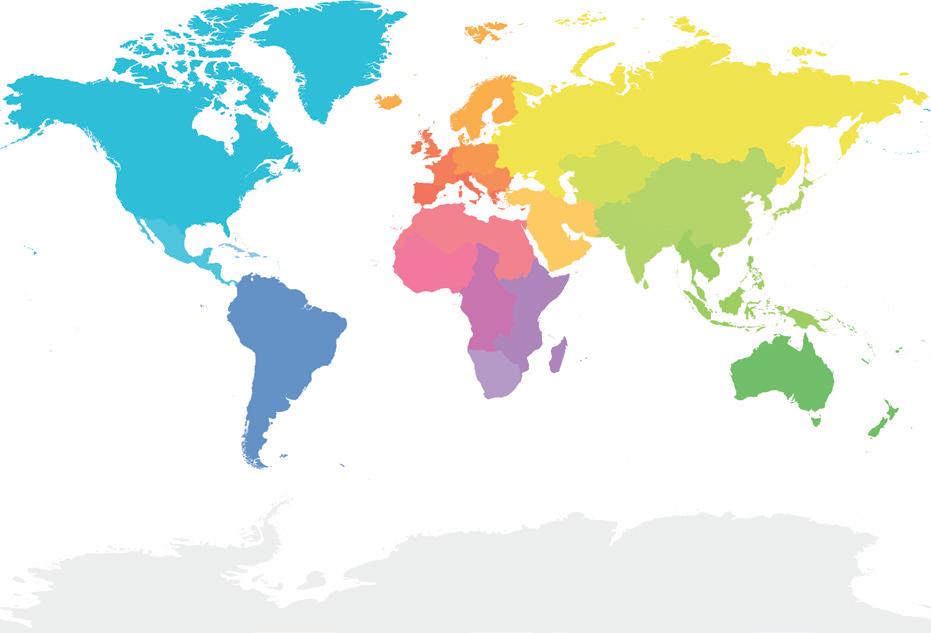
1 Nellie Bly was a journalist from the United States .
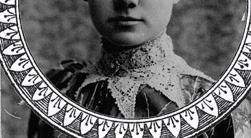
2 The inspiration for her journey was a
3 Her died when she was a child.
4 She started to work for the New York World in
5 To start her journey, Bly traveled by to England.
6 In the 19th century, there was a about her journey.
Read the fact sheet again. Match information a–f with facts 1–6.


a 1864 4
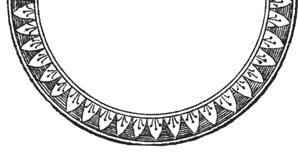
b 72

c 80
d November 14, 1889
e January 25, 1890
f

THINK!
mother
1864
movie
1887
1 number of days of an around-the-world journey in Jules Verne’s book






2 number of suitcases Nellie Bly took on her journey
3 date Nellie Bly finished her trip
4 year Nellie Bly was born
5 number of days of Nellie Bly’s around-the-world journey

6 date Nellie Bly started her trip
Imagine you are Nellie Bly. You can take only one small suitcase on your around-the-world journey. What do you pack?
READING
•
•
•
•
•
•
•
•
•
•
•
ship
1 1 2 3
WORKBOOK p.131
56
4
LANGUAGE IN CONTEXT
Look at the examples below. Complete the sentences from the fact sheet.
Simple Past of Regular and Irregular Verbs: Questions and Answers
Yes/No Questions (?)
Did I write about Nellie Bly?
Did you know she was a journalist?
Did she travel by train?
Did we read the newspaper?
Did they like Bly’s story?
Short Answers
Yes, I did. / No, I didn’t Yes, you did. / No, you didn’t Yes, she did. / No, she didn’t.
Yes, we did. / No, we didn’t Yes, they did. / No, they didn’t
Wh– Questions (?) Answers
Where 1 she up?
How 2 she a journalist?
When 3 she her journey?
Write Yes/No Questions.
In Pennsylvania. She wrote a letter to a newspaper. On November 14, 1889.
1 Did you go to the movies last night? (go)
2 Mark the movie with you? (watch)
3 the students Nellie Bly’s biography? (read)
4 Nellie Bly to Brazil? (travel)
Look at the list of things Nellie Bly took on her journey. Write questions.
1 Nellie Bly / take / a big suitcase / ?

Did Nellie Bly take a big suitcase?
2 How many / hats / have / in her suitcase / ?
3 she / put / slippers / in her suitcase / ?
4 What / she / use / to carry water / ?
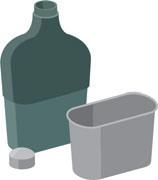
5 How / she / write / during her journey / ?
Write the answers to questions 1–5 in Exercise 3 in your notebook.

1 No, she didn’t. She took a small suitcase.
USE IT!

LOOK!
Use the infinitive form of the verb in questions. Did you go to school by bus?
two hats
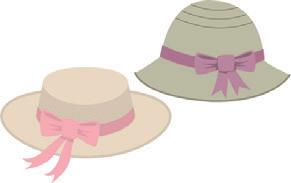
a small suitcase slippers
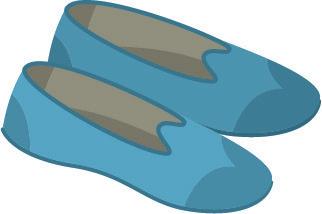
a flask and a cup paper, pen, and ink
5
Work in pairs. Ask and answer questions 1–4 about a real or imaginary journey.
1 Where / you / go / ?
2 How / you / get / there / ?
3 What / you / see / ?

4 What / you / take / ?
Where did you go?
1 2 3
WORKBOOK p.128 and 130 PRACTICE EXTRA
57 UNIT 5
58
LISTENING AND VOCABULARY
5.04 Complete actions 1–7 with the verbs below. Then listen, check, and repeat.

Look at the two cities on the map. Can you guess how long the journey between them took in the 1920s?


11–14 hours
8–10 days
San Francisco London
5.05 Listen to the radio show. Was your guess in Exercise 2 correct? Which five means of transportation do the presenters mention? 1
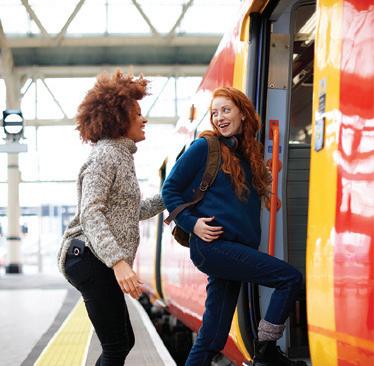

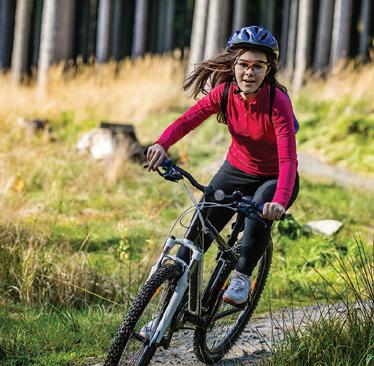

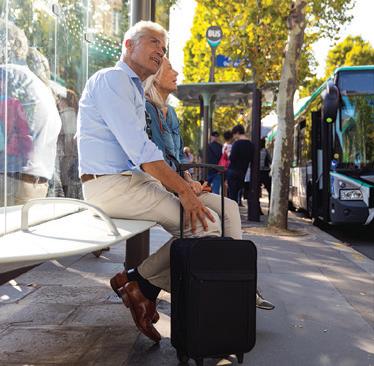

5.05 Listen again. Write T (true) or F (false). In the 1920s, …

1 it was difficult to travel. T
2 cars were very popular.
3 people planned their journeys.
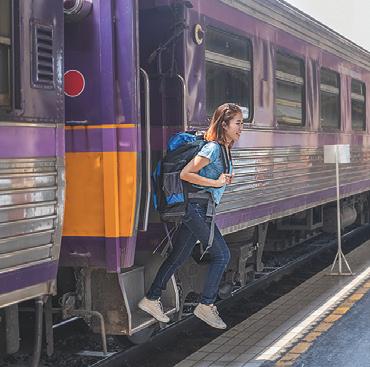
5 a journey across the Atlantic took several days.

1
• board • drive • get (x 2)
•
miss • ride • take • wait
5
airplane
2 3 4
3 4 WORKBOOK p.128 and 129
2
2–3 months
b o a r d an airplane
w for the bus
g on / t the train
r 1 5 6 7 2 3 4
a bike
m the bus d a car
g off the train
4 people often traveled by airplane.
6 people took buses from Southampton to London.
Complete the sentences from the radio show in the chart. Use could or couldn't.
Could for Ability in the Past

Affirmative (+)
I / You / He / She / It / We / They 1 take around ten days.
Negative (–)
I / You / He / She / It / We / They 2 travel quickly. Yes/No Questions (?)
Could I / you / he / she / it /we / they travel by airplane? Yes, / No,
Complete the sentences with could or couldn’t.
1 I couldn’t dance well when I was five. (–)
2 My cousins drive a car when they were 19. (+)
3 My teacher speak English in high school. (+)
1
theater

Short Answers
I / you / he / she / it / we / they could / couldn’t
4 Laura take the bus to school last year. (+)
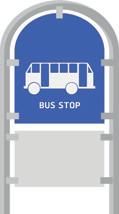
5 The students read fast. (–)

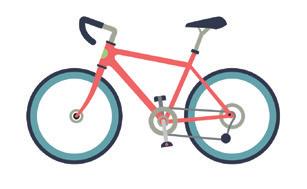
6 We do our homework. It was difficult. (–)
USE IT!
4 5
Work in pairs. Take turns asking and answering the questions in Exercise 3. Check (✓) or () the images for your partner.

Work with a different partner. Take turns sharing your classmate’s answers from Exercise 4.
WORKBOOK p.128 and 130 PRACTICE EXTRA
59 UNIT 5
go to the movie
alone
take a bus alone 3 swim
Write questions for an interview in your notebook. Use can or could and the ideas in 1–6. Now 4 play volleyball 5 ride a bike 6 read long books
2
Five years ago
1 2 3
1 Can you go to the movie theater alone now?
LANGUAGE IN CONTEXT
Rafael couldn’t ride a bike five years ago.
Gabriela can go to the movie theater alone.
AROUND THE WORLD
www.travelwithtom.myblog
ABOUT ME TRAVEL TIPS POSTS REVIEWS CONTACT ME

GETTING AROUND … HONG KONG WITH TOM!
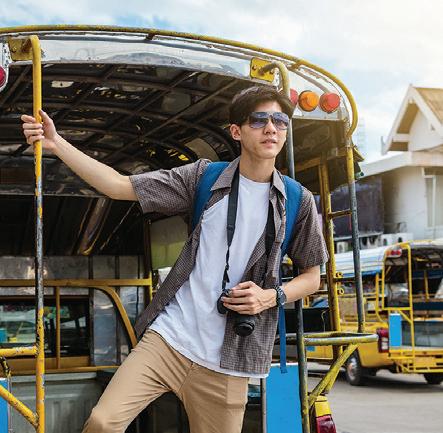
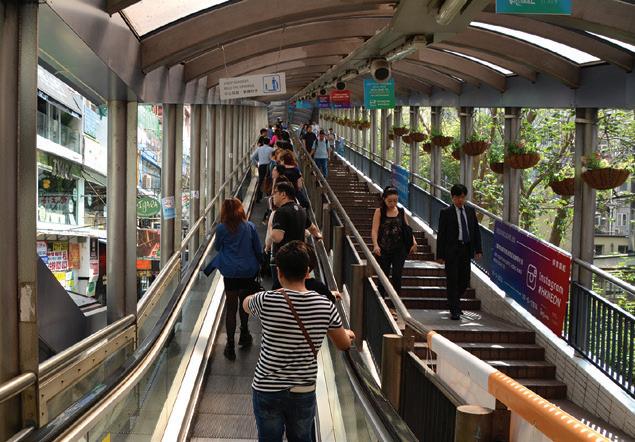
Hong Kong Island is a fantastic place, with almost eight million inhabitants. But it’s easy for tourists to use public transportation! I could visit all the places in the city during my week there.
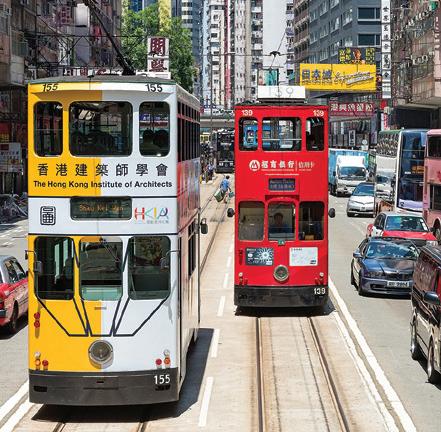


June 21






6




3
Getting around score:

Some trams have two decks, like buses in London

5
5
7 You can get from Hong Kong to China by train, plane, or car, but many people prefer to take the ferry. I took the ferry across the harbor to Shenzhen and had
Buy tickets for the ferry to Shenzhen!
6 Taxis from different areas of the island are different colors – red, green, and blue.
Red taxis
3 Cars drive on the left, like in the United Kingdom. I couldn’t drive there, but that was OK.
4 Escalators and moving walkways connect one part of the city to another, high on the mountain.
4
People using a moving walkway
2 A tram takes people to Victoria Peak, a famous mountain. e tram started to operate in 1888.
2
A tram going to Victoria Peak
1 e Mass Transit Railway (MTR) is a very popular transportation system. It combines subway, trains, and trams.
a great time.
7
You can’t eat or drink on the MTR trains or in the stations
1
Transportation in Hong Kong
60 Comments 25 ..........
Look at the review of Hong Kong. Circle the correct options.
1 The review presents interesting information about public transportation / activities in Hong Kong.
2 Tom wrote the review for Hongkongers / visitors
What elements show the text is a review?
star rating comments link to buy tickets
5.06 Read and listen to the blog review. Match items 1–7 in the review with questions a–g.
Which item …
a is about food and drink on public transportation? 5
b mentions similarities between Hong Kong and the United Kingdom?
c is about two unusual means of transportation?
d mentions colors as a way to organize public transportation?
e mentions a means of transportation from the 19th century?
f mentions how people can travel from Hong Kong to another territory?

g is about a combination of means of transportation?
Read the review again. Answer the questions.
1 How many people live in Hong Kong? Almost eight million people.
2 What is the score for public transportation in Hong Kong?
3 What means of transportation can you use to visit Victoria Peak?
4 What can’t you do on the MTR trains?
5 What is a popular means of transportation between Hong Kong and China?
WORDS IN CONTEXT
Match 1–4 with A–D.
1 escalator
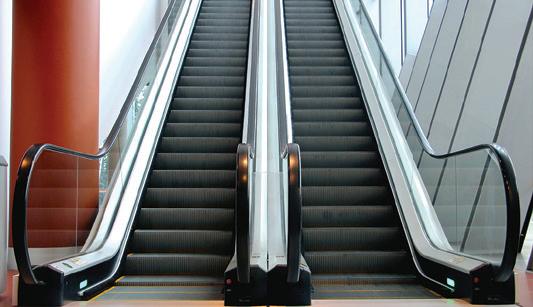
2 harbor

THINK!
WEBQUEST
Learn more! Check (✓) the correct answer.
In the past, junks were a popular means of transportation in Hong Kong, but now they are for tourists only. Junks are … cars. boats. trams.
Imagine you are a tourist in Hong Kong. What other information about transportation do you need? VIDEO
5.2
1 Why is traffic a problem?
2 Which countries are in the video?

1 2 3 4
3 mountain
4 railway 5
A B C D 61 UNIT 5
SPEAKING ASKING QUESTIONS ABOUT THE PAST
5.07 Read and listen to Luisa asking her uncle some questions. What two means of transportation do they talk about?
Luisa Uncle Jake, can I ask you some questions?
Uncle Jake Sure!
Luisa How did you get to school when you were ten years old?
Uncle Jake I took the school bus
Luisa Interesting … Was the journey long?
Uncle Jake No, it wasn’t
Luisa Did you ever ride a bike to school?
Uncle Jake No, I didn’t I couldn’t ride a bike.
Luisa OK. Thank you.
LIVING ENGLISH
Read the dialogue in Exercise 1 again. Write the correct expressions.
What do you say when you want to …
1 check if you can ask questions?
2 agree with something?
3 show interest in a conversation?
5.08 Listen, check, and repeat the expressions.
PRONUNCIATION
5.09 Listen to sentences 1–3 about Luisa’s uncle. Pay attention to the pronunciation of –ed in the simple past.


1 He worked for a newspaper. He liked his job.
2 He started his journey in March. He boarded a ship.
3 He traveled to China. He arrived in May.
5.09 Listen again and repeat.
6 7

5.07 Listen to the dialogue again. Then practice with a partner.
Role play a new dialogue. Follow the steps.
1 Interview your partner about how they traveled to school when they were ten years old.
2 Change the words in blue in Exercise 1 to write a new dialogue in your notebook.
3 Practice your dialogue with a partner.
4 Present your dialogue to the class.
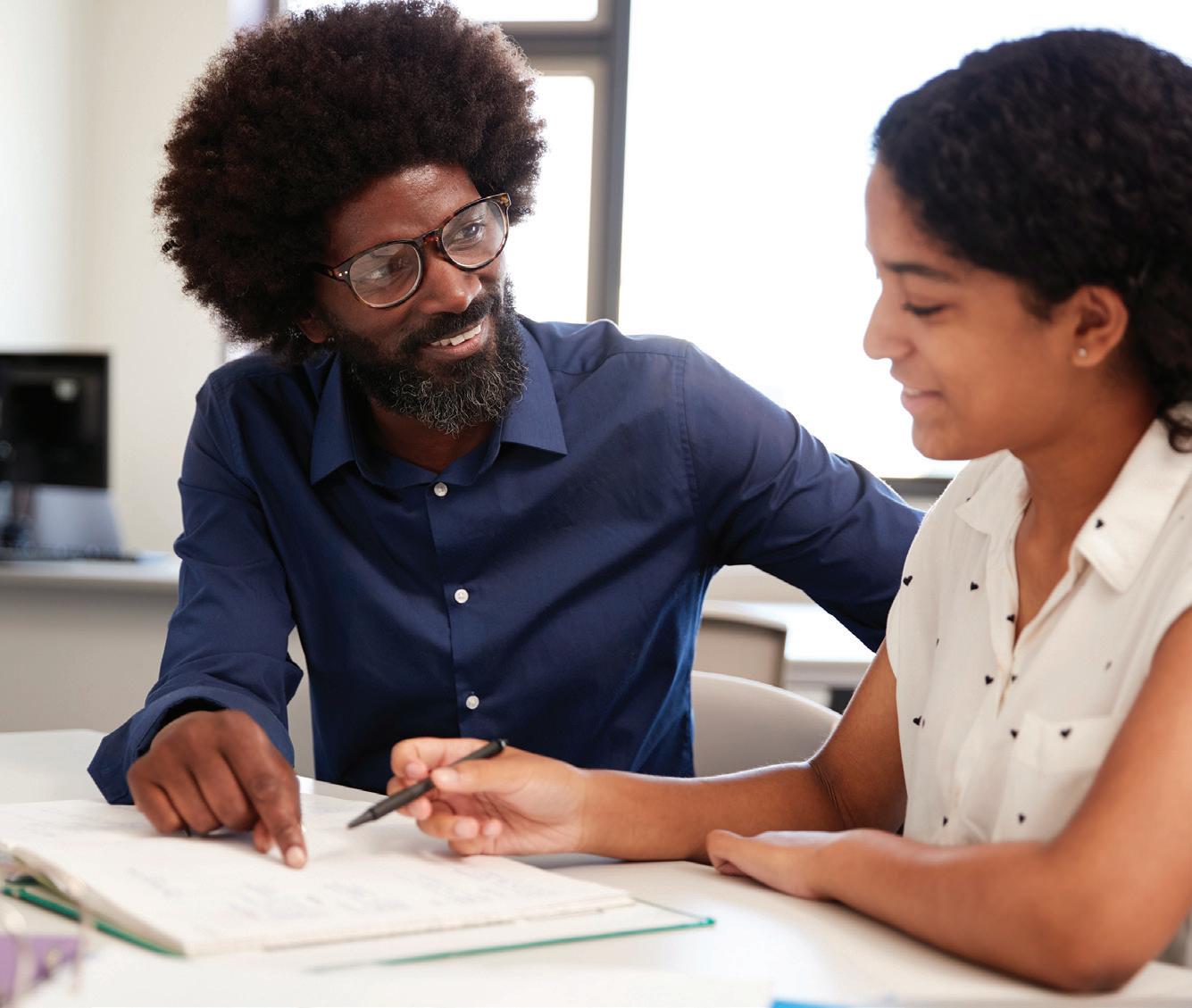
1
2 3
4 5
to
YOUR
PRACTICE EXTRA 62
Record your interview and upload it
your class digital portfolio.
DIGITAL PORTFOLIO







































